SUMMARY
This is AI generated summarization, which may have errors. For context, always refer to the full article.
![[OPINION] A long and winding road to peace in Bangsamoro](https://www.rappler.com/tachyon/2023/05/TL-Long-winding-road-peace-bangsomoro-May-6-2023.jpg)
The guns fell silent on the Monday after Eid in Maguindanao del Sur province. But for hundreds of displaced families, the ceasefire between the two warring camps in Datu Saudi Ampatuan town came late. Forced to evacuate following clashes between armed men linked to rivaling MILF commanders that broke out right after the Muslim holiday of Eid-ul-Fitri, local families concluded the fasting month of Ramadan on a somber note. The reasons for the fighting were as mundane as they were complex: a cycle of vengeance pitting families against one another in clan feuds or rido, competition over resources, and the ever-present specter of local politics. The result was disquieting: at least eight fighters were killed, and several houses, burnt.
This was unfortunately not an isolated case. During the past year, similar clashes have regularly affected Bangsamoro communities, particularly in Central Mindanao, casting a shadow over the peace process in Mindanao. Almost 10 years after the 2014 Comprehensive Agreement between the Philippine government and the Moro Islamic Liberation Front (MILF) put an end to decades of bloody conflict in Mindanao, these violent incidents could still threaten the Bangsamoro peace process. The agreement, which covers a variety of issues ranging from the newly created entity’s fiscal autonomy to transitional justice and women’s rights, has been lauded as one of the most comprehensive peace pacts in the world. Ten years on, the process is largely on-track, but there are still significant hurdles on the path to durable peace.
The creation of the Bangsamoro Autonomous Region in Muslim Mindanao (BARMM), in 2019, was a historic milestone. Since then, the interim government of the Bangsamoro Transition Authority (BTA) has made progress: it has passed four of the seven legislative codes required as part of the transition period, built hospitals and village centers, and managed to keep the economy afloat despite the pandemic and its aftershocks. Meanwhile, more than half of the MILF guerrillas have been demobilized, while former bastions of Moro insurgents and militants, such as Sulu province, are now largely stable.
Yet, as other peace processes around the world have demonstrated, it takes time for durable peace to take hold. Naturally, the MILF leaders have realized that governing through bureaucratic means is far more challenging than waging guerilla warfare. In the meantime, interlocking issues are piling up and threaten to throw peace off-track, namely contentious politics, local violence, and the uneven implementation of the peace agreement.
Although the MILF and local governments across the Bangsamoro started off on a non-adversarial footing, many of these relationships have slowly soured. This is particularly true in Central Mindanao, where the political elites and ex-rebels are most openly at loggerheads. But even in Lanao and the Sulu Archipelago, interactions between the regional administration and local governments oscillate between cautious cooperation and discord. With the barangay elections approaching later this year, these interests are expected to collide during the campaign, which could lead to political violence.
In various parts of the region, pockets of violence are also on the rise, and stand to threaten the peace process. Although the ceasefire between the MILF and the Philippine military has largely held, irritants between the two sides continue, occasionally resulting in clashes. Last year, a fierce two-day battle led to the death of several soldiers and guerillas. Upwards trends in violence triggered by clan feuds, political competition, and disputes over land also pose a challenge to peace. In the absence of sanction mechanisms and firm foundations for the rule of law, violence remains a risk-free gambit for local elites, criminal elements, and frustrated MILF combatants. This extends to rebel commanders, who are increasingly embroiled in local struggles. Some, feeling neglected by the MILF leadership, look for other ways to thrive and get support, while others are more unambiguous in their quest for power.
The normalization process, as the broader war-to-peace transition is known, is also running behind schedule. Despite incongruencies on the exact number of MILF guns to be handed over, rebel demobilization is largely on-track, but progress on other normalization elements is less encouraging: the disarmament of private armed groups and militias is behind schedule, the transformation of MILF camps into “peaceful and productive communities” is lagging, and the delay in delivering compensation packages to decommissioned combatants is creating frustrations among the MILF’s rank and file, leading to tensions.
What can be done to ensure greater stability before the 2025 elections that will mark the official end of the transition period? There are no simple solutions at this critical stage of the peace process. But with less than two years before the 2025 poll season kicks off, time is of essence for the region’s interim government and Manila to demonstrate a sense of urgency in fulfilling the promises of the peace agreement.
First, tackling the risk of political violence requires a stronger intra-Moro consensus. It is not too late for the MILF and Bangsamoro’s political clans to work on a modus vivendi that could preserve a minimum level of stability. One of the major achievements of the peace process is the granting of autonomy to the Bangsamoro people to take care of their own affairs. Managing differences in such a fractured entity is difficult, but it is a must for long-term stability. In that regard, it is somewhat puzzling that, four years after the creation of the BARMM, the interim government has still not convened the Council of Leaders provided for by the Bangsamoro Organic Law. This consultative body, which would bring together Moro leaders and representatives from across the region, could be a useful venue for ironing out political differences.
Second, the interim regional government needs to work harder to curb local violence. In pockets of the region, apathy and disillusionment at the interim government’s capacity to tackle the issue appear to be gaining ground – a contrast to the optimism witnessed at the outset of the Bangsamoro transition. To counteract these perceptions and stabilize the region, the interim government should make better use of existing dispute settlement bodies at the municipal level to spearhead local conflict resolution. To minimize occasional tensions between government and MILF forces, both sides could also consider reviving local monitoring and peacekeeping networks, and strengthening the mandate of the hybrid security teams deployed in conflict-prone areas. The regional government should also leverage the interplay between the Bangsamoro ministries and the MILF commanders on the ground: ex-rebels, no matter their rank or clout, should not be allowed to act as representatives of special interest groups or their families. In other words, the MILF leadership should discipline and sanction commanders who continue to resort to violence.
Finally, Manila needs to move faster in implementing the government’s wider commitments to the peace process, particularly when it comes to the normalization track. While the Philippine government’s focus on securing the rebels’ weapons is understandable, it risks eclipsing other steps that are just as crucial for achieving durable peace. In particular, Manila needs to deliver on the promised packages for demobilized guerrillas, and get more serious about disarming the private armed groups that operate in the Bangsamoro. The Marcos administration should also follow through on the peace agreement’s amnesty provisions for ex-rebels, and fast-track the rehabilitation of MILF camps – in a conflict-sensitive manner, in order to not alienate non-Moro groups. Combatants and their communities need to sense that promises made in the peace agreement have not been broken and that the peace process is bringing benefits to their daily lives, including the right to live without fear of violence.
A successful Bangsamoro peace process is within reach. But with the decisive 2025 elections looming, all parties involved need to redouble their efforts, work together in the spirit of trust and cooperation enshrined in the peace agreement, and summon the political will to overcome the current challenges. – Rappler.com
Georgi Engelbrecht is a senior analyst for the Philippines at the International Crisis Group, carrying out research on peace processes and conflicts, among others.
Add a comment
How does this make you feel?
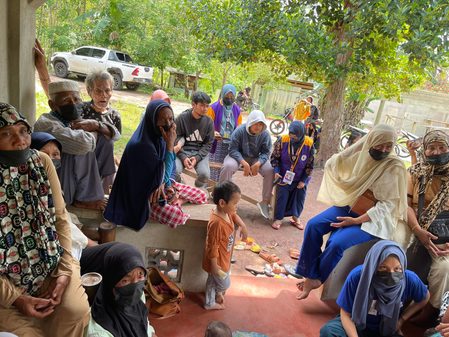
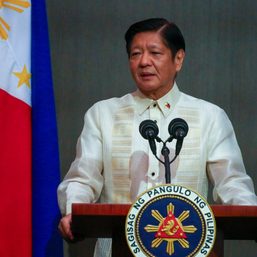
![[OPINION] A challenge to Marcos government and MILF](https://www.rappler.com/tachyon/2024/03/TL-Challenge-Marcos-MILF-March-25-2024.jpg?resize=257%2C257&crop_strategy=attention)
![[OPINION] Political parties must embody Bangsamoro people’s aspirations](https://www.rappler.com/tachyon/2024/03/imho-bangsamoro-embodiment-03212024.jpg?resize=257%2C257&crop_strategy=attention)
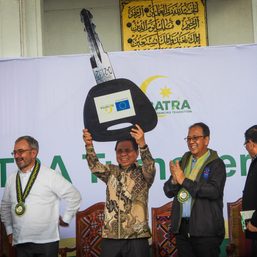


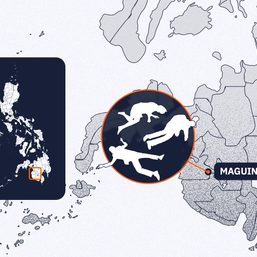

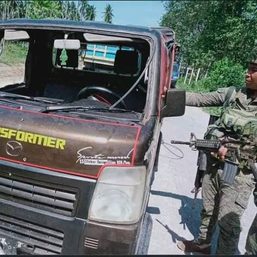



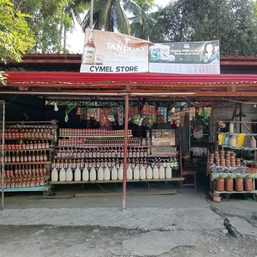
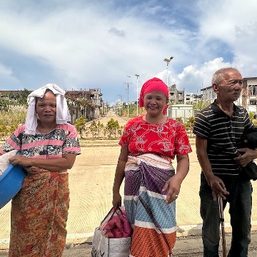
![[Newsstand] Time to negotiate peace again with the CPP-NPA](https://www.rappler.com/tachyon/2024/05/negotiate-peace-again-may-10-2024.jpg?resize=257%2C257&crop_strategy=attention)
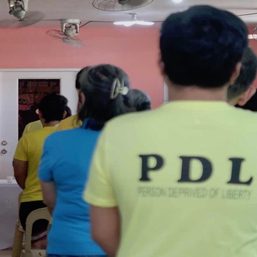
![[OPINION] The CPP-NPA’s 3rd Rectification Movement is bad news to the peace process](https://www.rappler.com/tachyon/2024/01/tl-cpp-npa-peace-talk-rectification.jpg?resize=257%2C257&crop=366px%2C0px%2C1080px%2C1080px)
![[WATCH] In the Public Square with John Nery: 10 years of peace, recommitting to the Bangsamoro peace process](https://www.rappler.com/tachyon/2024/01/Episode-62-In-the-Public-Square-LS.jpg?resize=257%2C257&crop=395px%2C0px%2C1080px%2C1080px)
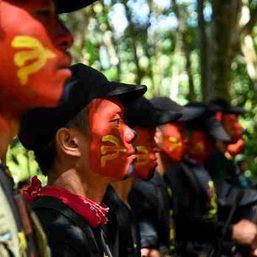
There are no comments yet. Add your comment to start the conversation.